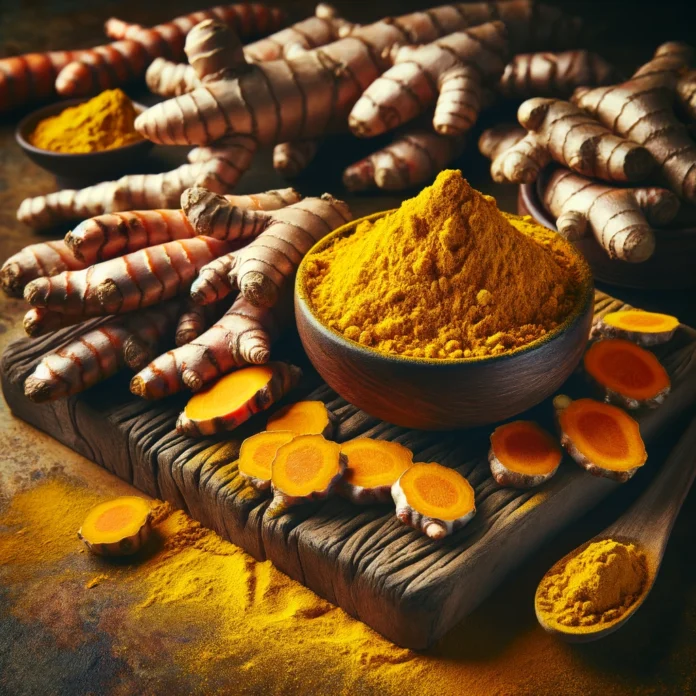Turmeric, a vibrant golden spice, has been revered in culinary and medicinal circles for centuries, particularly in traditional Indian and Chinese systems of medicine. Today, modern science is beginning to uncover the depth of turmeric’s potential health benefits, which range from reducing inflammation to potentially warding off chronic diseases.
A Potent Anti-inflammatory Agent
Turmeric’s star compound, curcumin, is a natural anti-inflammatory agent. Inflammation is a vital bodily response to injury and infection, but chronic inflammation can contribute to numerous diseases, including heart disease, cancer, Alzheimer’s disease, and various degenerative conditions. Curcumin’s ability to reduce inflammation is so effective that some studies compare it to pharmaceutical options, without the side effects commonly associated with drugs.
Boosting Antioxidant Capacity
Oxidative damage is believed to be one of the mechanisms behind aging and many diseases. Curcumin in turmeric not only blocks free radicals directly but also stimulates the body’s own antioxidant enzymes. This one-two punch is what makes turmeric a powerful antioxidant.
Support for Brain Health
Early studies suggest that curcumin may increase levels of Brain-Derived Neurotrophic Factor (BDNF). This protein is vital for keeping nerve cells healthy and regulating communication between them, which is crucial for learning and memory. It might also delay or even reverse many brain diseases and age-related decreases in brain function.
Heart Health and Turmeric
Curcumin may improve endothelial function, or the health of the thin membrane that covers the inside of the heart and blood vessels. This membrane plays a key role in regulating blood pressure. Lower endothelial function is associated with aging and an increased risk of heart disease. Curcumin’s positive effects on endothelial function could be as potent as exercise or some drugs used to treat heart disease.
Easing Arthritis Symptoms
Due to its high anti-inflammatory properties, curcumin is also favorable in managing arthritis. Several studies suggest that turmeric extracts can reduce symptoms of arthritis, sometimes performing on par with pharmaceutical drugs and with fewer gastrointestinal side effects.
A Natural Painkiller and More
Emerging research shows that turmeric can act as a natural pain reliever, helpful in conditions like menstrual pain, post-surgery pain, and in the treatment of skin conditions. Moreover, preliminary studies hint at the protective effects of turmeric against certain cancers.
Making Turmeric Part of Your Daily Regimen
Incorporating turmeric into your diet is simple. It can be added to smoothies, made into a warming tea, or used to bring color and flavor to curries and stews. However, curcumin is not absorbed easily by the body, but you can enhance its absorption by pairing it with black pepper, which contains piperine, a natural substance that enhances the absorption of curcumin by 2,000%.
A Word of Caution
While turmeric offers numerous health benefits, it’s not a cure-all and should be used as a complement to a balanced diet and healthy lifestyle. Always consult with a healthcare provider before starting any new dietary supplement, especially if you are pregnant, nursing, or have a medical condition like gallbladder disease.
Conclusion
As research continues to explore the breadth of health benefits associated with turmeric, incorporating this golden spice into your diet might be a small change that can lead to substantial improvements in your health and vitality.




